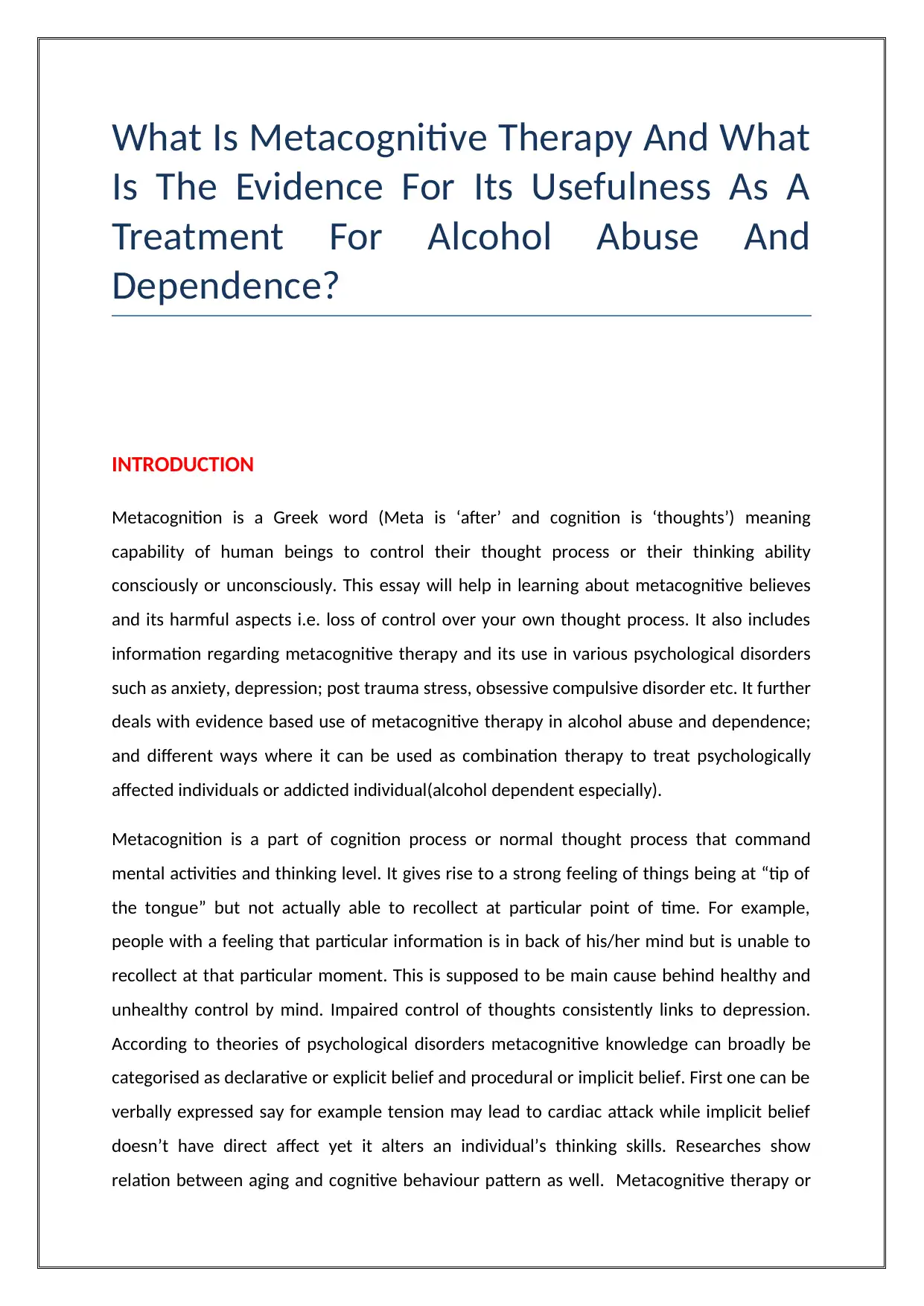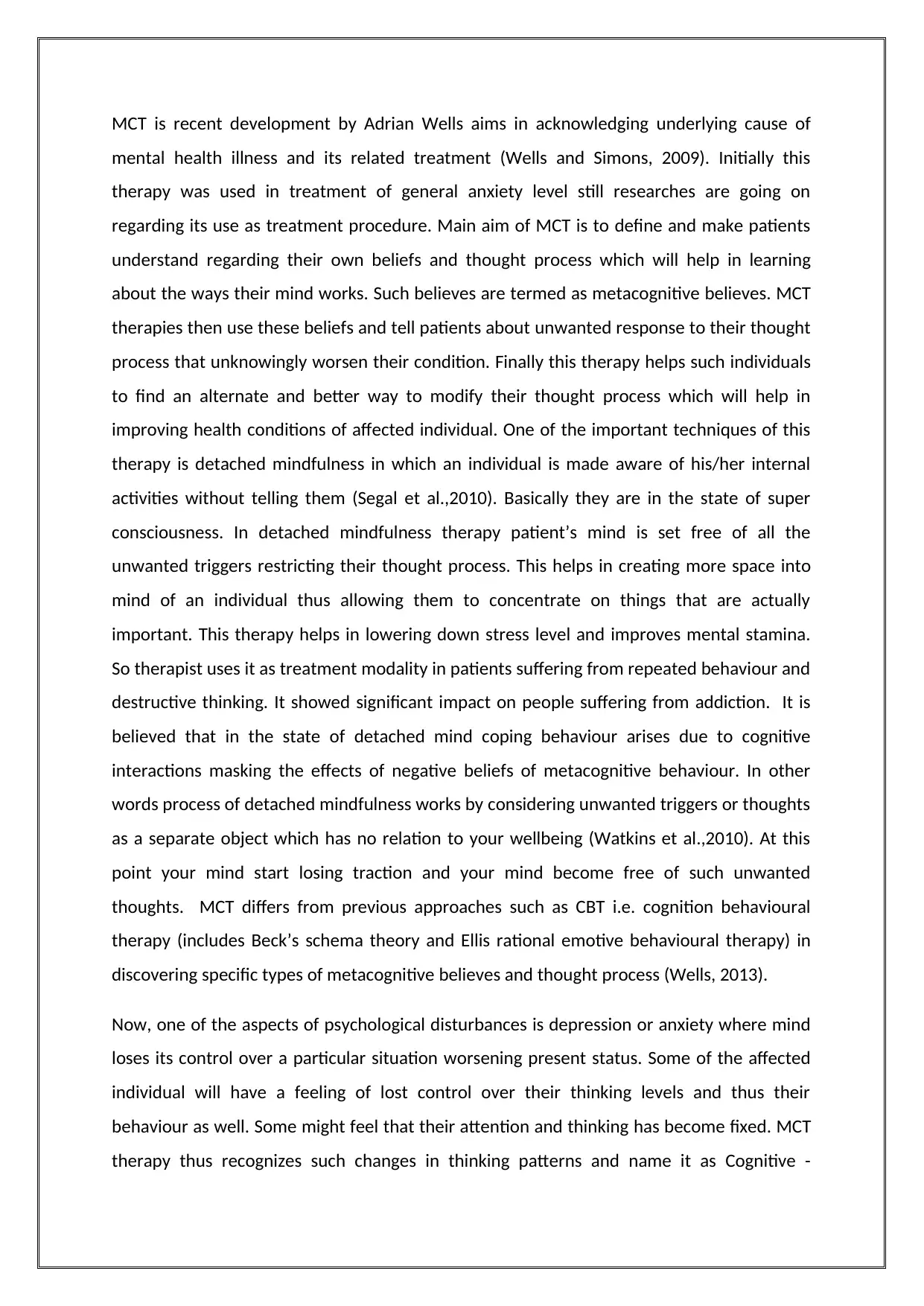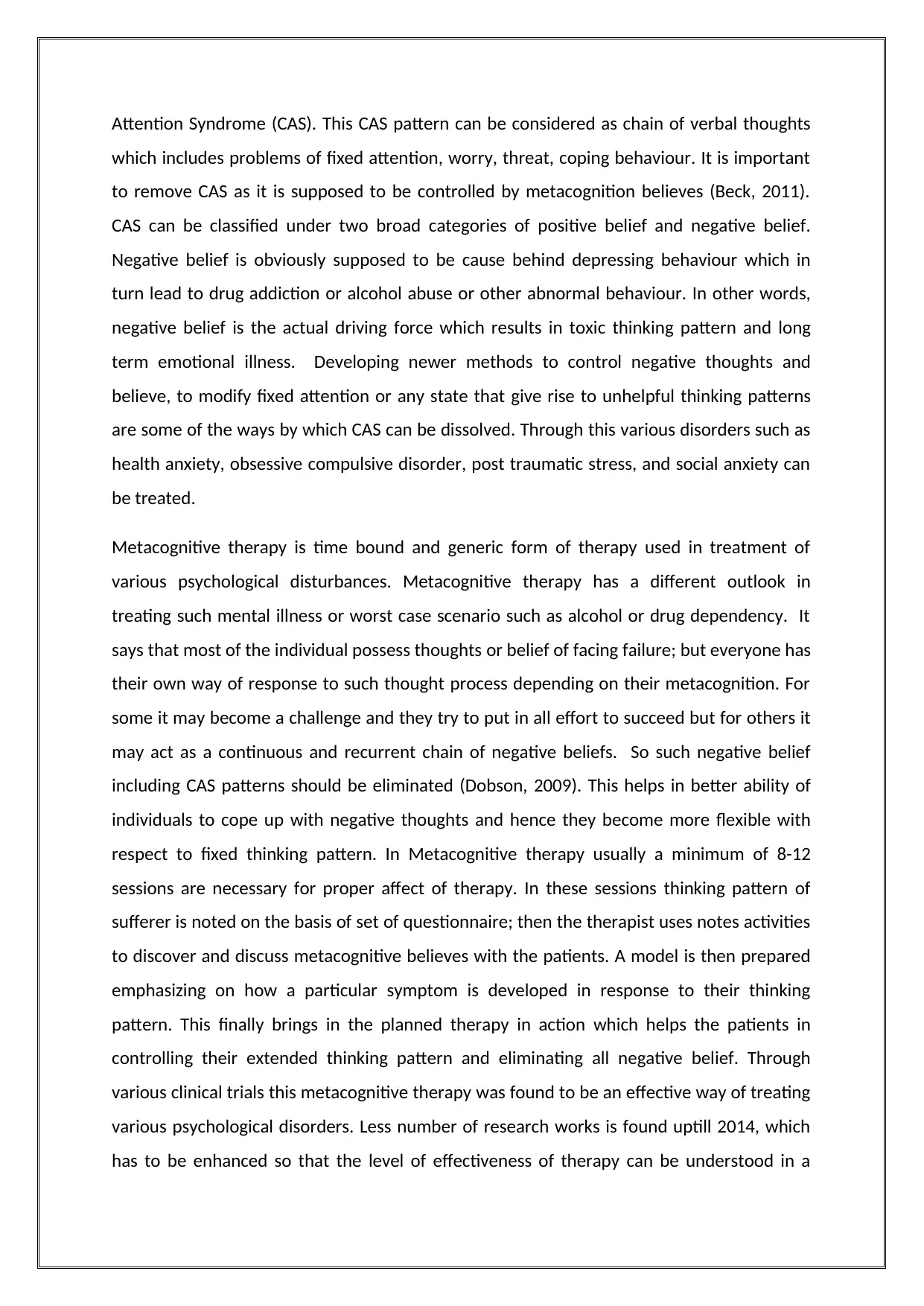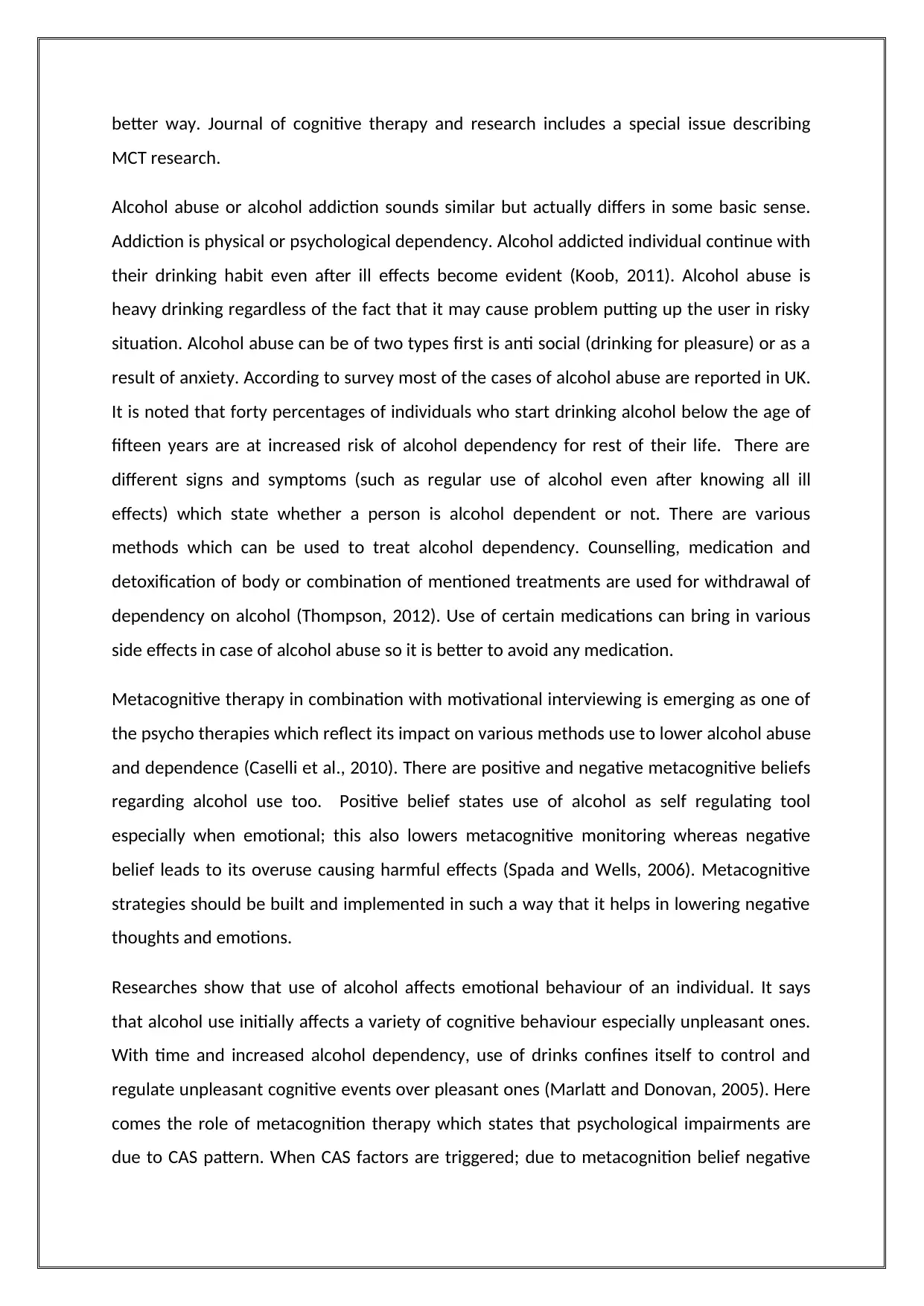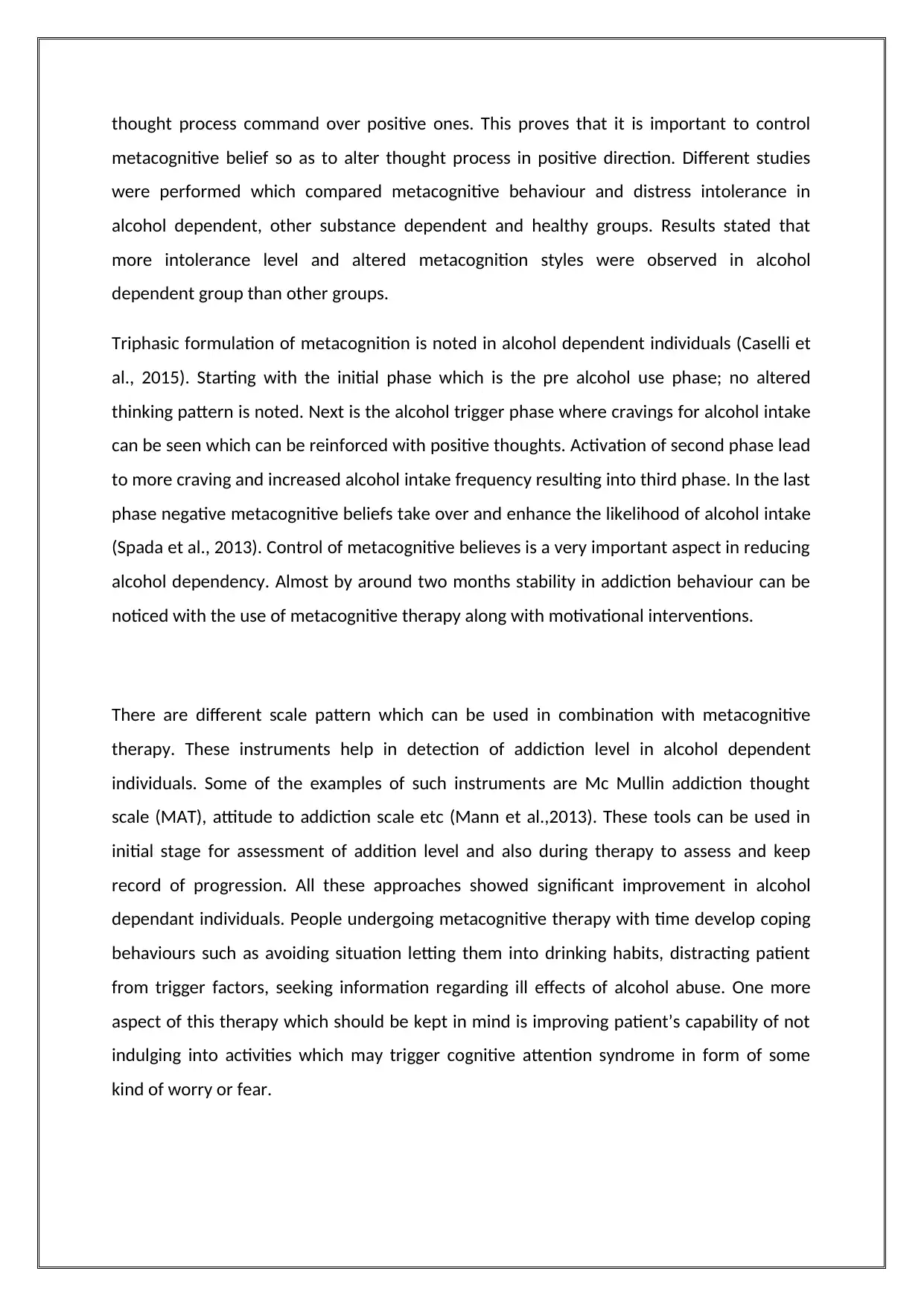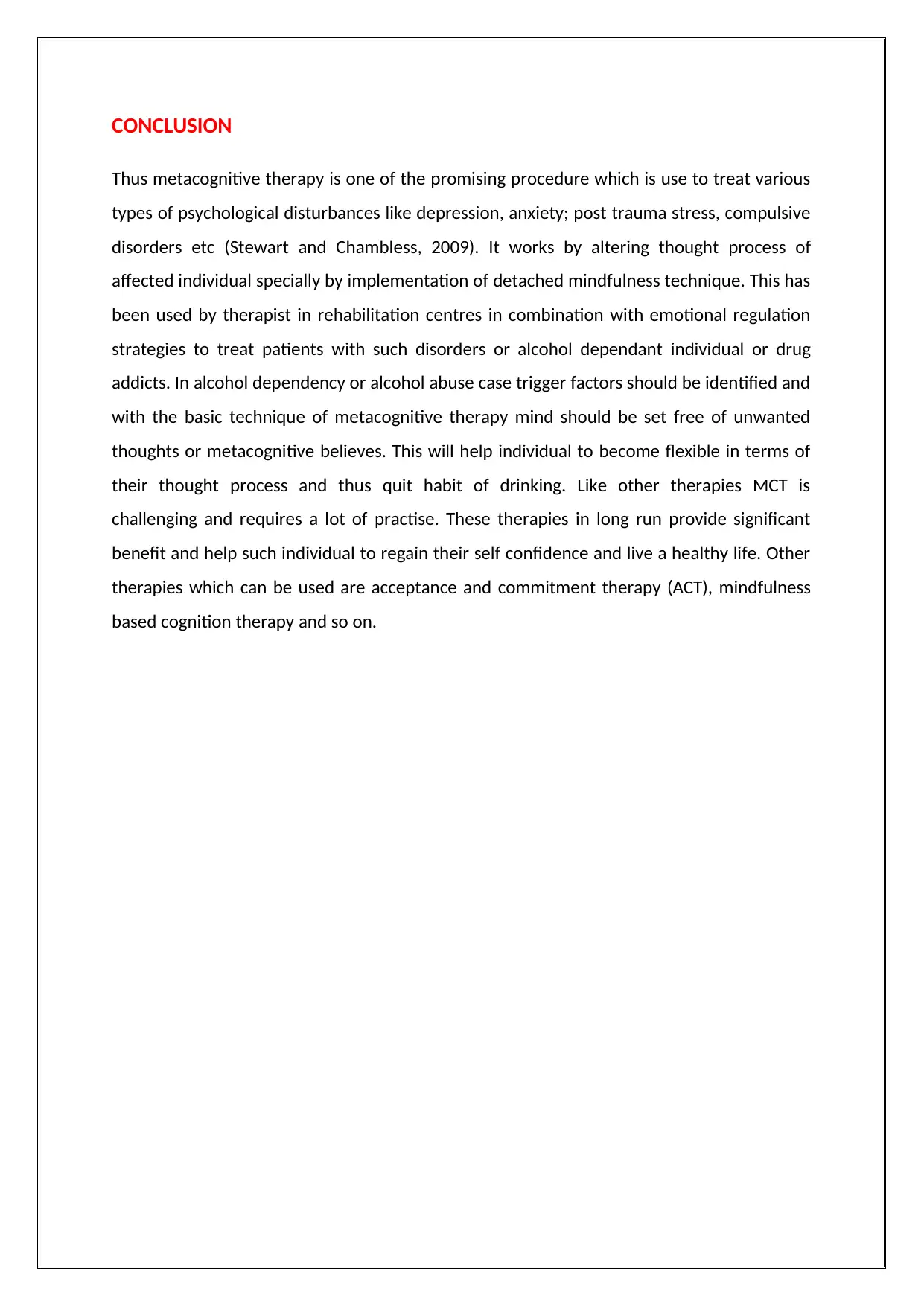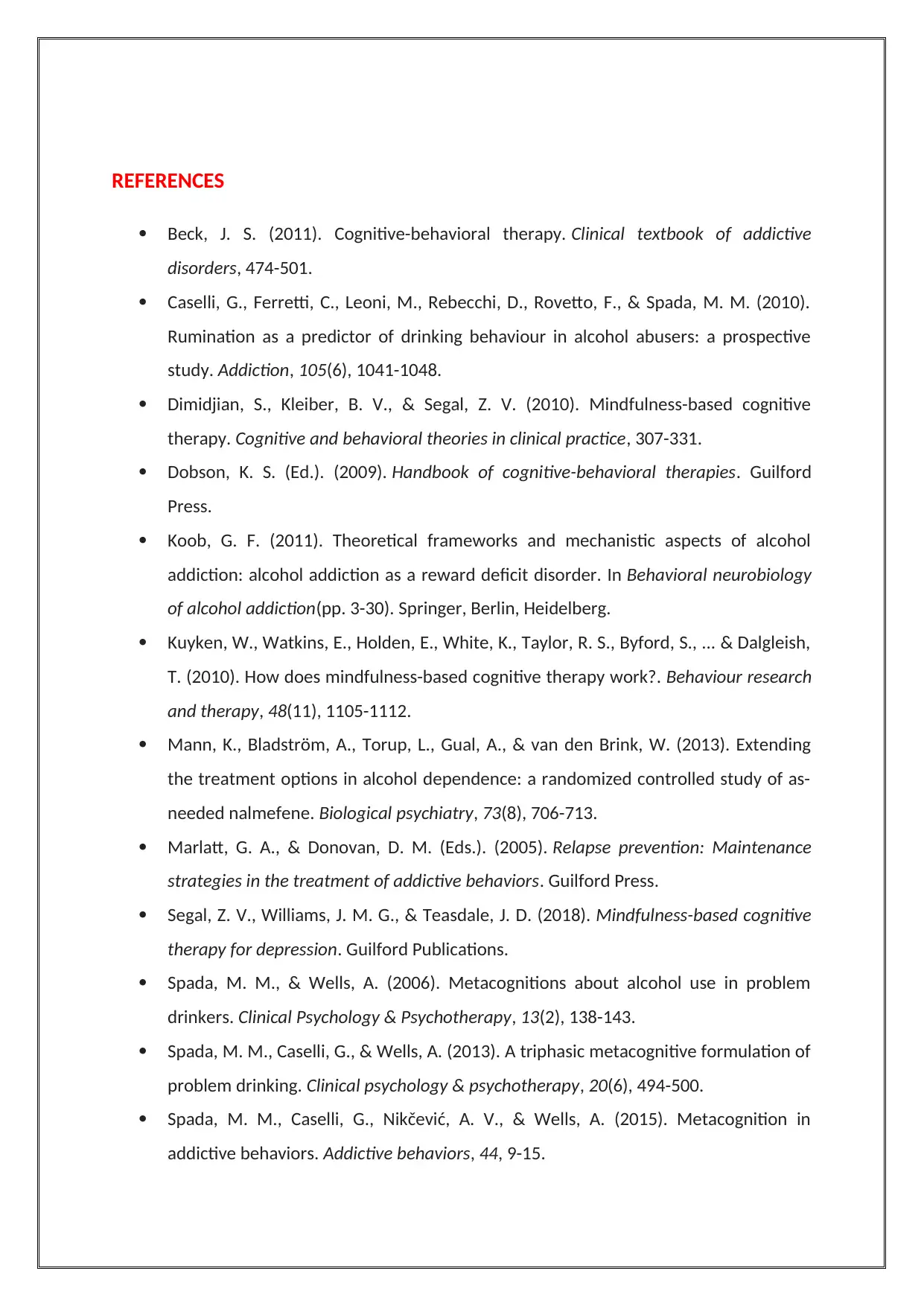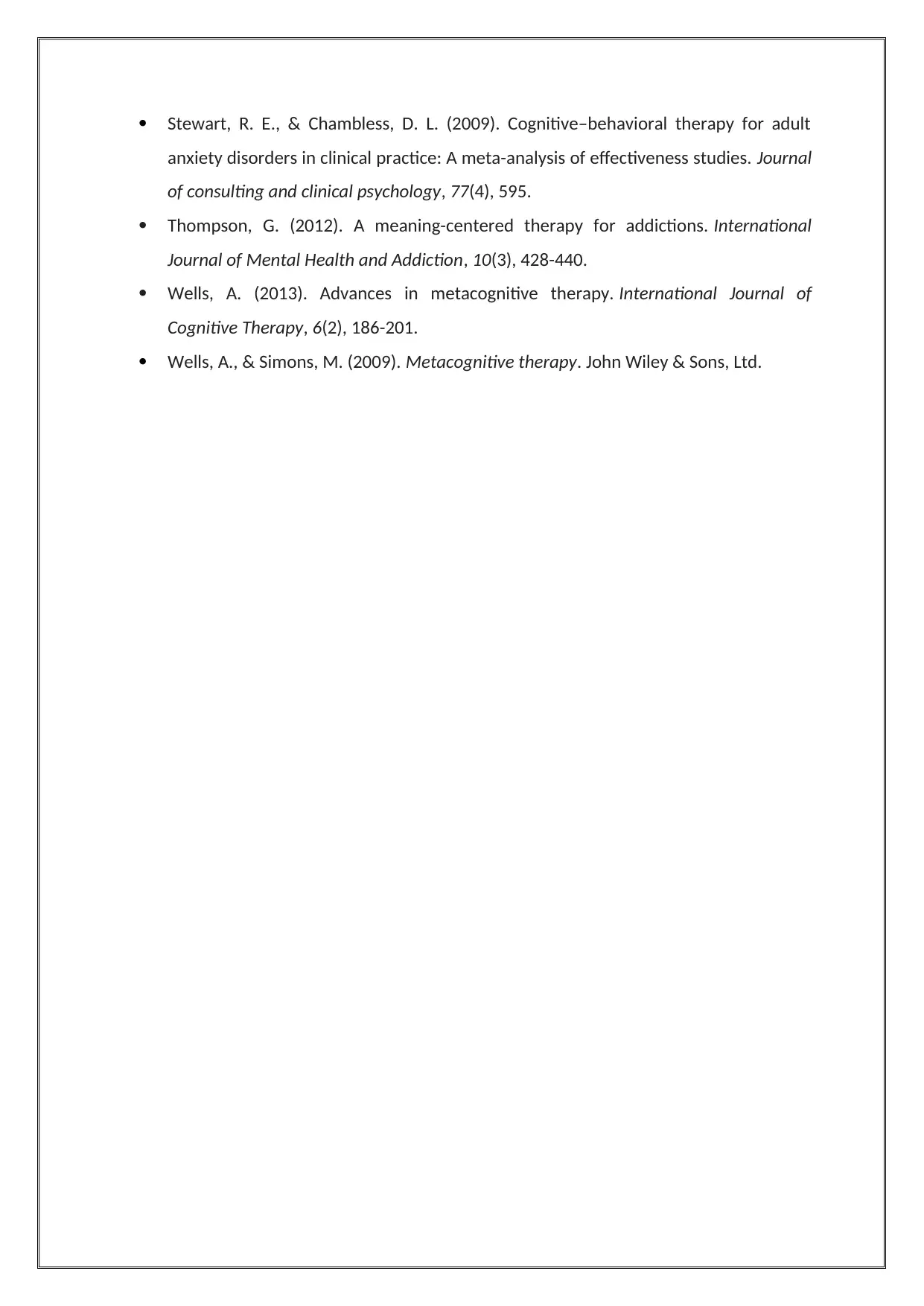This essay explores the principles of metacognitive therapy (MCT) and its effectiveness in treating alcohol abuse and dependence. It delves into the concept of metacognition, its role in psychological disorders, and how MCT addresses problematic thought patterns associated with addiction. The essay examines the evidence supporting MCT's use in alcohol dependence, highlighting its unique approach compared to traditional cognitive behavioral therapy (CBT). It also discusses the triphasic formulation of metacognition in alcohol dependence and the potential benefits of combining MCT with motivational interviewing. Finally, the essay emphasizes the importance of identifying trigger factors and developing coping mechanisms to promote long-term recovery.
![[object Object]](/_next/static/media/star-bottom.7253800d.svg)
![[object Object]](/_next/static/media/star-bottom.7253800d.svg)
